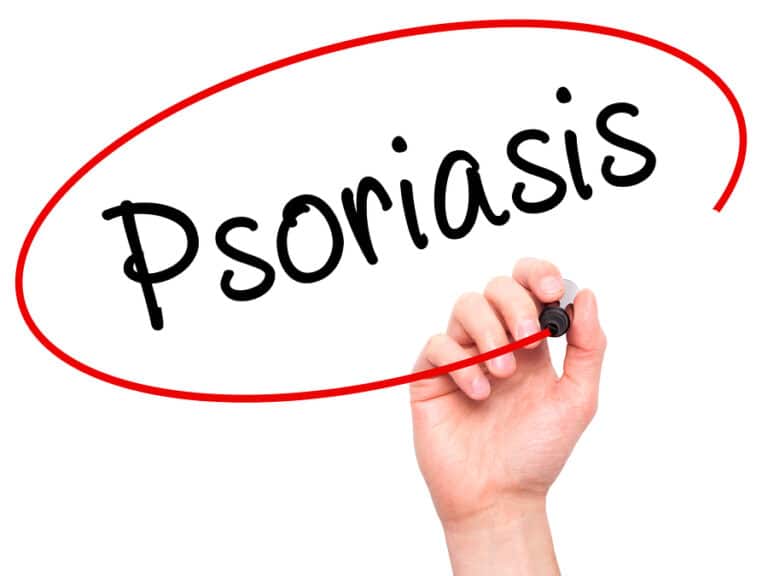Understand What Psoriasis Is
Psoriasis is a chronic, systemic disease in which the immune system attacks healthy skin cells. It presents with raised, red, itchy, and sometimes painful lesions or patches on the skin. It can also cause other symptoms such as exhaustion and mental anguish from the stigma that can be associated with this and other visible skin disorders.
There are several types of psoriasis, but the most common type is plaque psoriasis; normally marked by patches on the trunk and limbs and specifically notable on the elbows, knees, and scalp.
Understand What Psoriasis Is Not

It’s important to note that Psoriasis is not contagious. The lesions are not infectious and cannot be spread to a caregiver or anyone else by skin to skin or any other kind of contact.
Understand Who It Affects
Psoriasis is common. It affects between 1% and 5% of individuals globally,1 so it is often seen in elder care and many caregivers will be familiar with the ailment.
Scientists believe that most people with psoriasis have one or more specific genes which can affect the immune system and make them more prone to developing the skin and immune disease.
Understand the Triggers
Avoiding triggers can be key to reducing psoriasis flares. It’s important to be sure your loved one’s caregivers know any possible triggers you are aware of. While individuals react differently to everyday items, some common triggers for psoriasis are:
• Stress
• Weather, especially cold or dry conditions
• Heavy alcohol consumption
• Tobacco use
• Some medications (check with your senior’s physician or dermatologist for more information)
Know Your Options
Never try to self-diagnose psoriasis in yourself or a loved one. While there is no cure for psoriasis, finding the right physician or a dermatologist can be a vital step in arming yourself with the tools you need to help your family member get the care and comfort that they need.
It’s also important to keep your loved one’s caregiver in the loop so that they can provide the best in-home care to suit your senior’s needs. Knowing that there is help and having the right team of professionals available to you and your loved one’s caregivers is key.
Additional Tip: While there are both home and holistic remedies that may help ease the discomforts of the skin flare ups associated with psoriasis, finding what works for your loved one may be something that requires a little research and trial application to find what works best. Be patient and continue to support the caregivers as you work together to help ease the symptoms of your loved one.
If you or an aging loved one are considering hiring Senior Care in Seneca, SC, contact Heart of the Carolinas Home Care at 864-991-3116. Providing Home Care Services in Greenville, Simpsonville, Greer, Anderson, Spartanburg, Mauldin, Seneca, Laurens, Charleston, Columbia and the surrounding areas.
For more information and resources about psoriasis, visit Psoriasis.org
Source: World Health Organization. Global report on psoriasis. Geneva: World Health Organization; 2016.
- Is it Possible to Prevent Family Caregiver Burnout? - April 25, 2025
- Home Care Assistance Helps Seniors After A Fall - April 9, 2025
- How Home Care Supports Seniors Who Are Hard of Hearing - March 28, 2025

